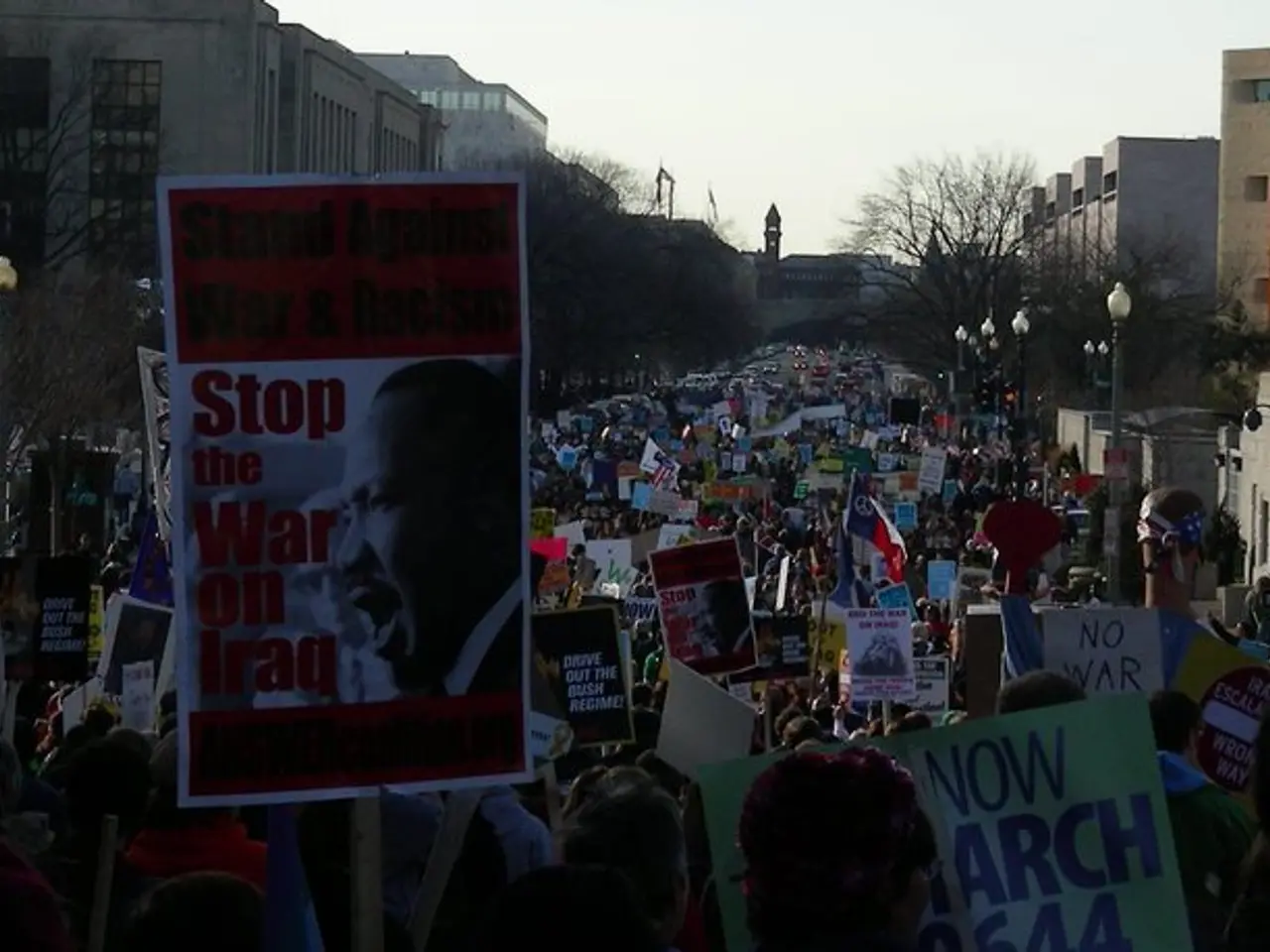"In Dusseldorf local elections, the Green Party and SPD aim to steer clear of events where the AfD participates in their campaigning."
In the aftermath of the 2025 constitutional protection's new assessment, classifying parts of the Alternative for Germany (AfD) as extremist, Germany's major political parties have largely maintained a policy of non-cooperation and exclusion regarding the AfD.
The Christian Democratic Union (CDU), traditionally the largest party in Germany, has passed a resolution of incompatibility that prohibits any cooperation or coalition formation with the AfD at the federal level. This firewall also extends to The Left party. However, a controversial instance involving CDU leader Friedrich Merz supporting a migration policy resolution backed by the AfD, FDP, and the Union, sparked criticism from other parties and civil society, but did not officially change the CDU's stance against cooperation.
The Social Democratic Party (SPD), the Greens, and The Left all explicitly refuse to form any coalitions or cooperate with the AfD. The SPD, in particular, has been critical of attempts by the Union to work with the AfD, denouncing right-wing influences on government policy.
The Free Democratic Party (FDP) also rejects cooperation with the AfD and The Left, aligning with the CDU on this exclusionary policy.
Mainstream parties react with concern and protests over any perceived collaboration with the AfD, given the intelligence agency's classification of the AfD's regional branches as proven right-wing extremist and anti-democratic, which further entrenches the political cordon sanitaire.
Discussions on a possible legal party ban against the AfD are underway, emphasizing the severity of the AfD’s threat to Germany’s constitutional order, but party ban proceedings are complex and remain unresolved. This official scrutiny reinforces the mainstream parties' rejection policies.
The SPD Düsseldorf, in response to the new classification, has announced that they will not participate in events, panels, or discussion rounds that also include representatives of the AfD during the upcoming municipal election campaign. The SPD Düsseldorf views Düsseldorf as an international, diverse, and open-minded city, which makes it culturally, economically, and socially strong, while the AfD stands for the opposite and has played a below-average role in Düsseldorf so far.
Clara Gerlach, the Green mayoral candidate in Düsseldorf, has also stated that she will not participate in any discussion event during the municipal election campaign if representatives from the AfD are also present. Gerlach believes that podium discussions should not serve as a stage for right-wing populist, right-wing radical, or anti-democratic forces.
The SPD Düsseldorf's and the Greens' decisions not to participate in discussions with the AfD are reflections of their commitment to counter the threat to democracy posed by the AfD. These decisions may set a precedent for other political parties during election campaigns.
Read also:
- Court petitions to reverse established decision on same-sex marriage legalization
- Commemoration of 200 Days of American Resurgence Unveiled
- Minister Bärbel Bas expresses doubts about her tenure as a minister following a recent interview during the summer.
- Politicians from both Republican and Democratic parties are urging President Trump to maintain the security agreement with Australia and the United Kingdom.








